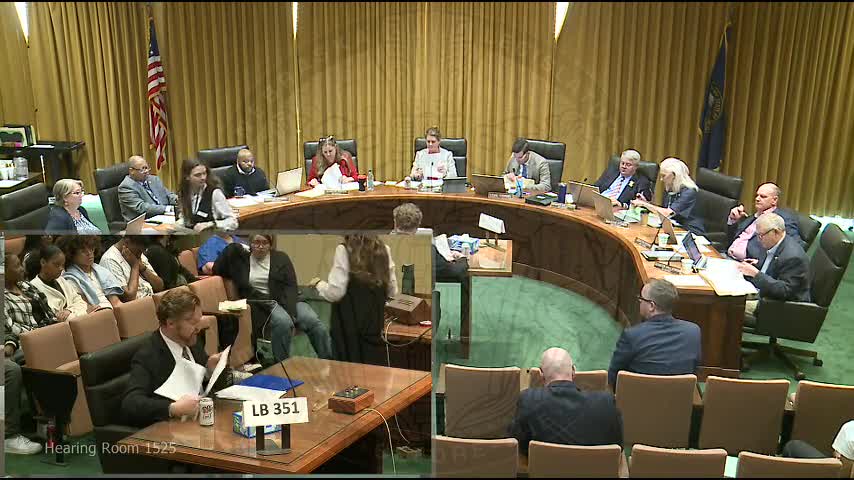Panel debates LB351: proponents urge flexibility for Lincoln Regional Center; counties say mandated bed percentages improved waits
Get AI-powered insights, summaries, and transcripts
Subscribe
Summary
LB351 would remove statutory bed‑allocation percentages at Lincoln Regional Center to give the Department of Health and Human Services more flexibility; county corrections and regional authorities opposed the change, saying statutory minimums reduced wait times.
Senator John Kavanaugh introduced LB351 as the second bill arising from the legislative mental health capacity study. He said the measure “strikes language in statute relating to priority of admission at the regional centers” and would remove mandated bed percentages that currently limit Health and Human Services’ allocation of beds at the Lincoln Regional Center (LRC).
Kavanaugh backed the recommendation that the LRC’s admissions prioritize public‑safety needs and urged removing rigid percentages that were written into law in 2022. He said the consultants recommended giving the regional center “flexibility to optimize its capacity and improve patient outcome based on current needs rather than being constrained by statutory requirements.”
Opponents included Brad Johnson, director of Lancaster County Corrections, who testified on behalf of his county and department. Johnson said LB921 (2022) and the minimum bed requirements played a major role in reducing unacceptable wait times for people ordered to the regional center. He urged the committee not to “undo the success of LB921,” citing a drop in local average wait times from very high figures to about 33.75 days after the 2022 law and state DHHS payments that reduced county costs.
Patrick Bridal (Region 5 Systems Behavioral Health Authority, speaking for regional administrators) said regional systems rely on access to LRC beds and warned reductions in statutory access risked limiting community hospitals’ ability to transfer patients in crisis. Bridal recounted decades of legislative shifts moving Nebraska from a more institutional model toward community‑based care and said guaranteed access to beds in LRC remained important to regions.
Why it matters: Supporters of statutory flexibility argued removing percentages would let LRC prioritize patients dynamically and avoid holding reserved beds unused while people wait in county jails. Opponents said bed allocations were a proven tool that helped reduce county jail waits and any rollback could lengthen stays for people ordered to treatment.
Next steps: Committee questions focused on how to balance flexibility with guaranteed access. No committee vote was taken at the hearing.
